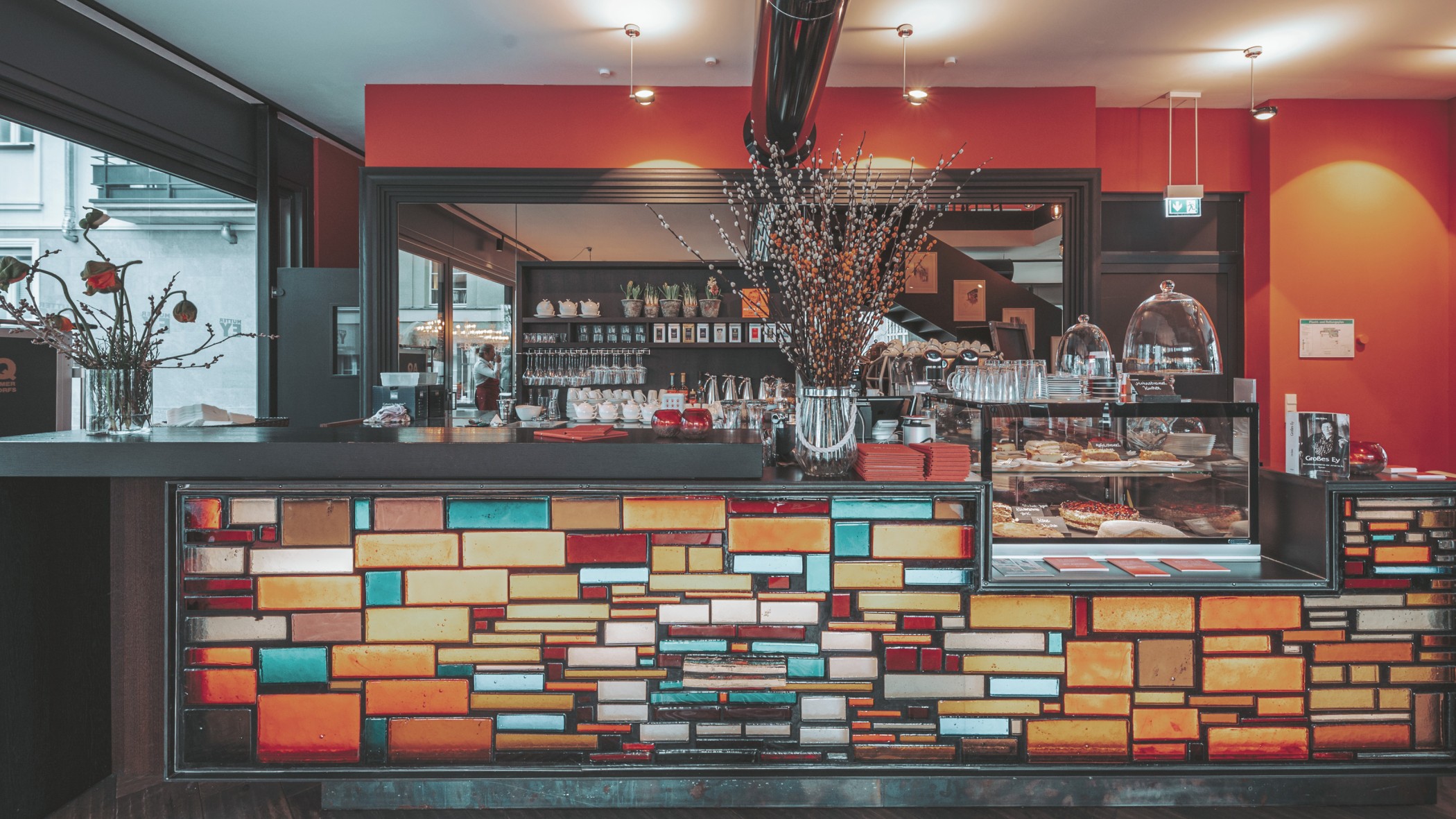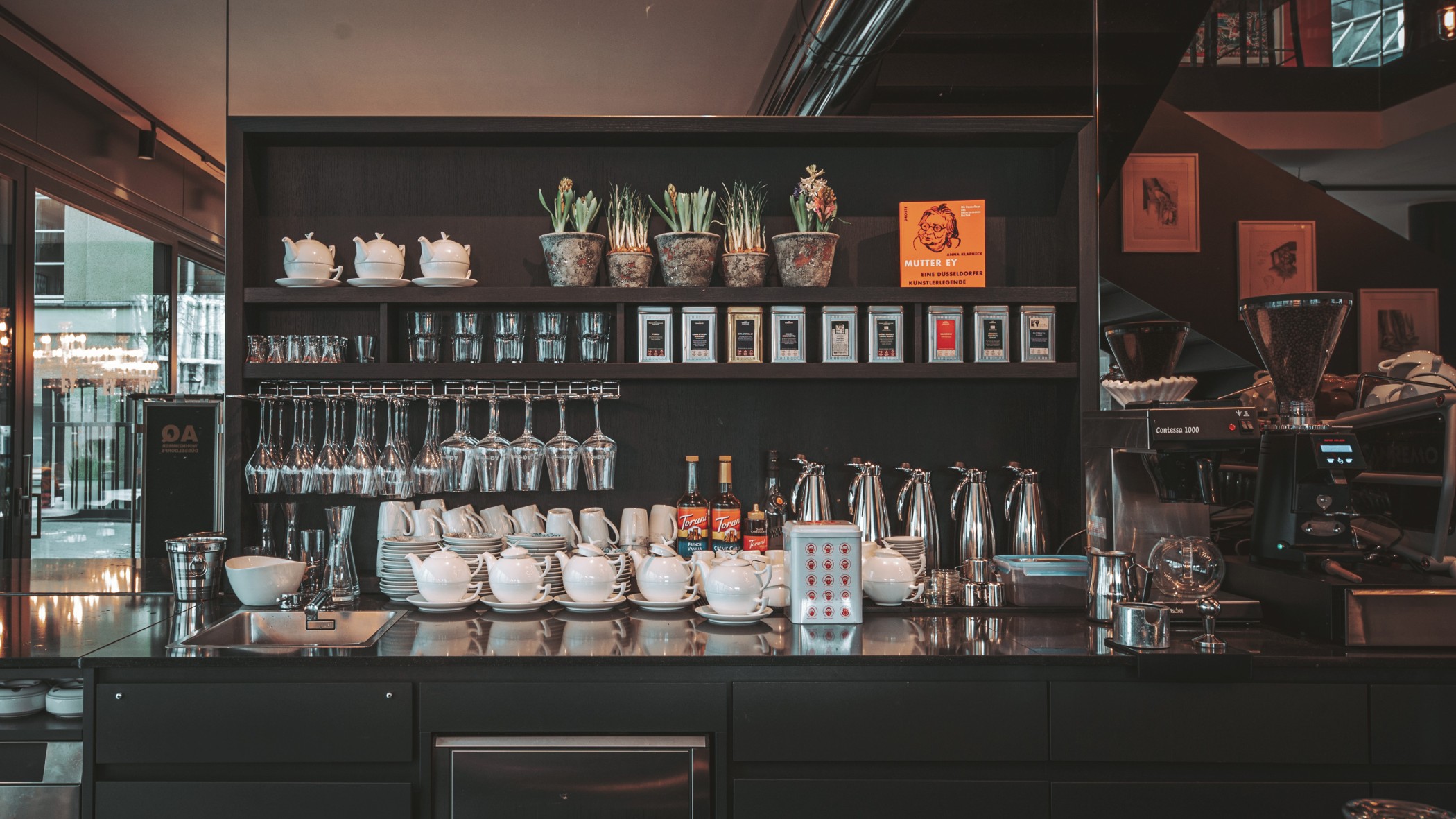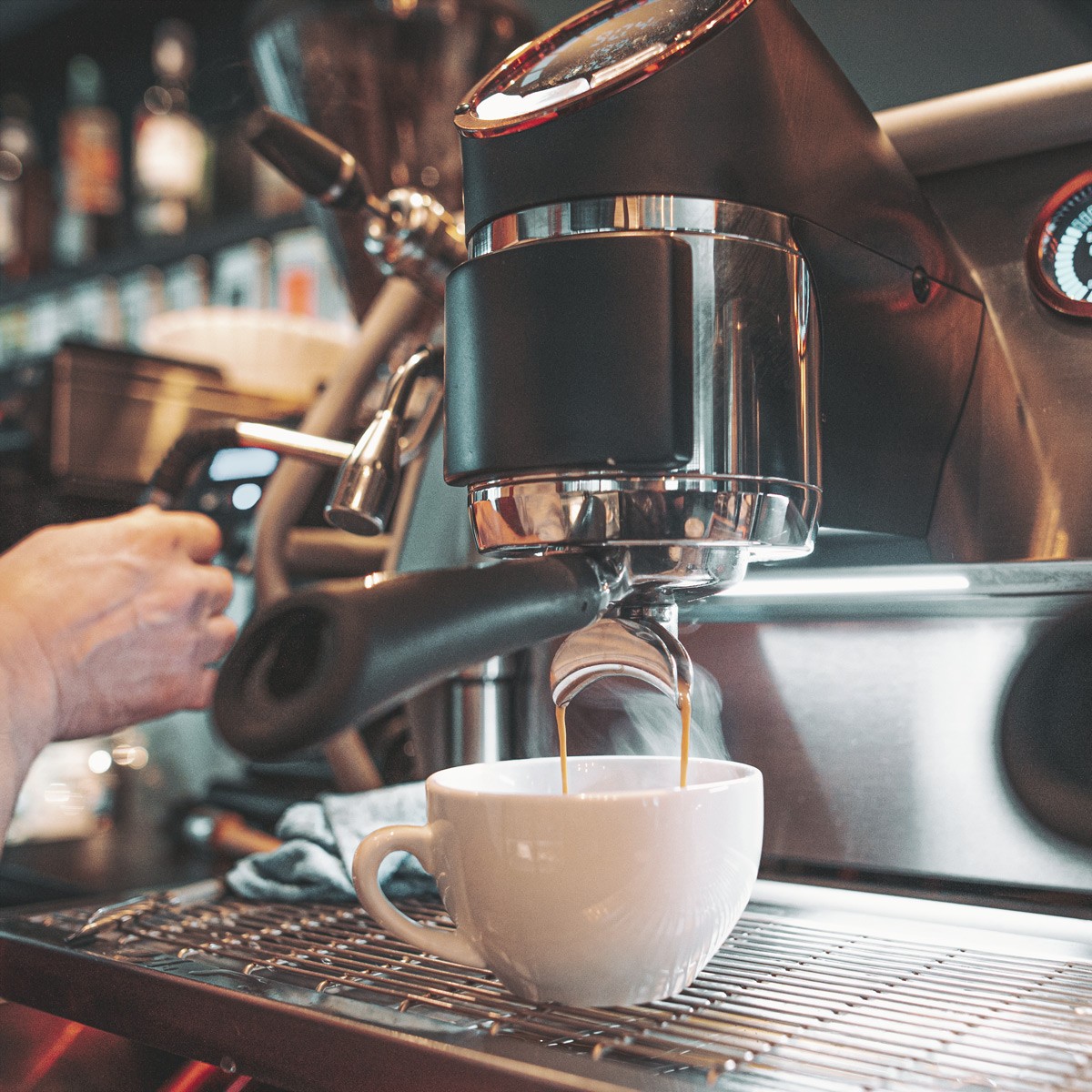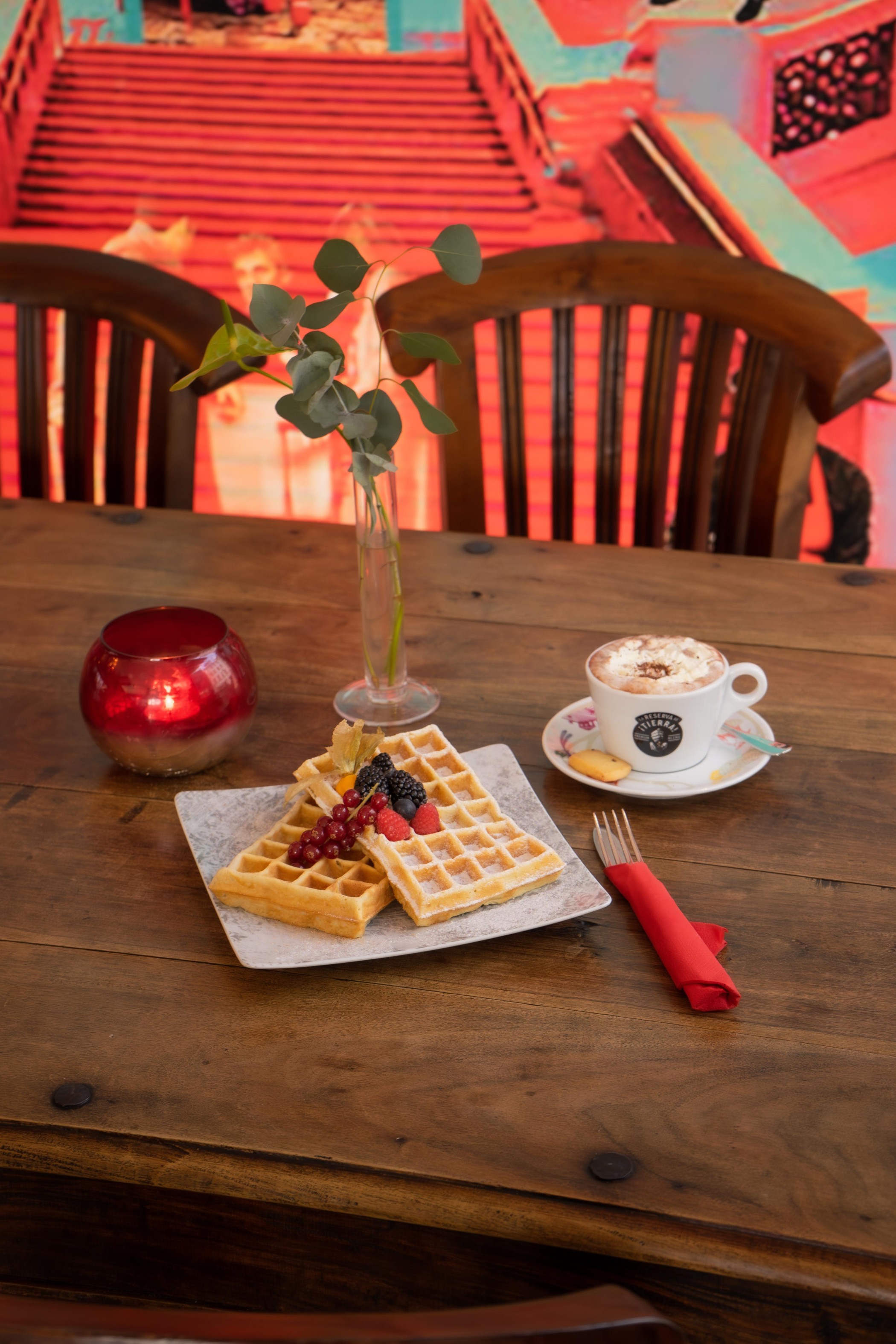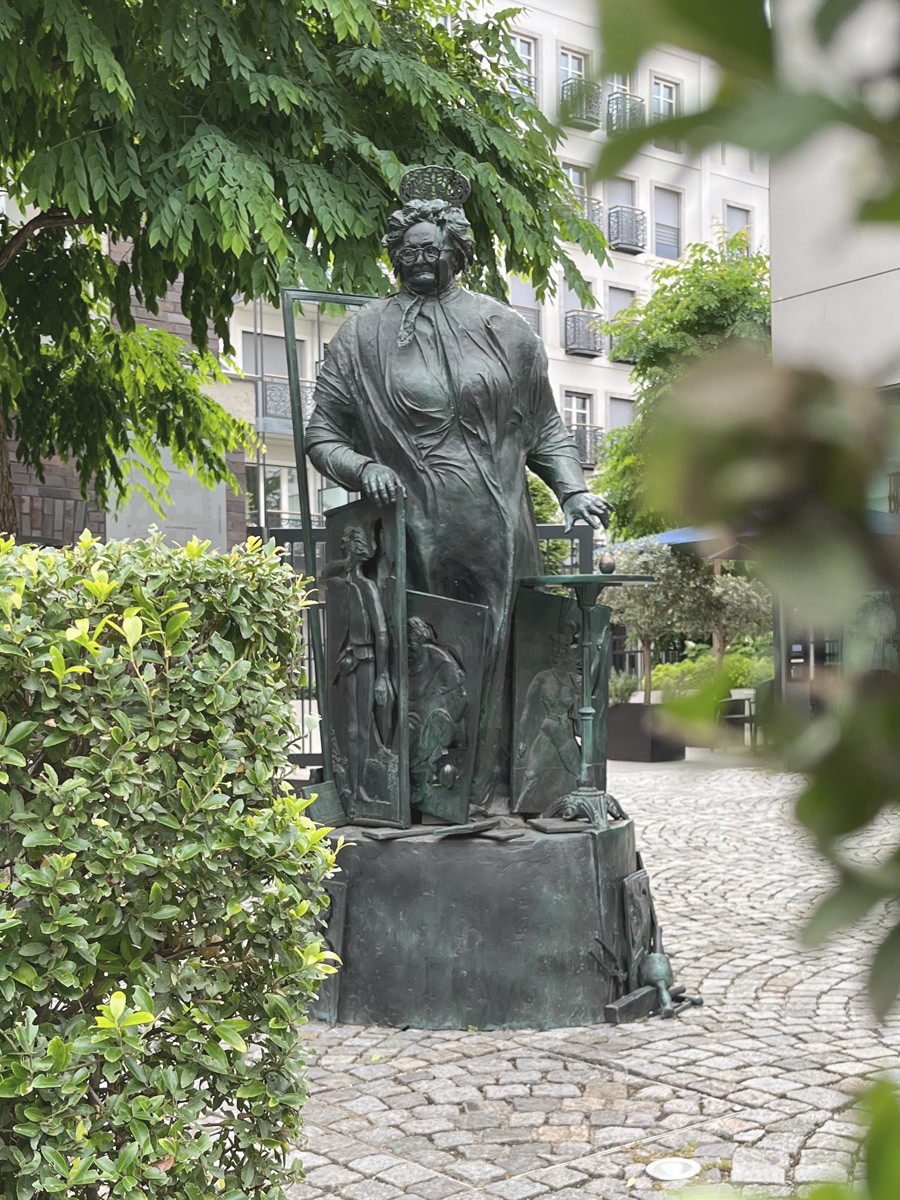Mutter Ey Café
Living art history in Düsseldorf
The Mutter Ey Café in the Andreas Quartier pays homage to the legendary Johanna Ey. The gallerist and patron of the arts, who went down in art history as ‘Mutter Ey’, supported students at the Düsseldorf Art Academy and young artists in the 1920s. By promoting talents such as Otto Dix and Max Ernst, she not only shaped the Düsseldorf art scene. Her tireless commitment to art and her ability to create an inspiring atmosphere in her café on Ratinger Straße have been revived in the Mutter Ey Café. Here, art is not left without a bread and butter, but art and culinary delights come together in their most beautiful form.
Welcome to Mutter Ey!
A meeting place for connoisseurs of the art of living
The inviting warmth radiated by the modern design of the Mutter Ey Café recalls the historic coffee and bakery that Johanna Ey once As in the past, Mutter Ey is a meeting place for a wide variety of personalities throughout the day – from artists' breakfasts to lunch and coffee and cake in the late afternoon.
Culinary delights
Traditional recipes and modern creations
The menu combines traditional recipes with new creations. Famous are the ‘Geheimwaffe(l)n Mutter Ey’ – fresh waffles with powdered sugar and hot cherries, a tribute to the culinary preferences of the eponym. In addition, there is a selection of delicious cakes and savoury dishes, which are suitable for both small and large meals.
Art gallery
Always dedicated to art
The highlight of the café is the gallery on the first floor, which – in keeping with the spirit of its namesake – offers young artists a platform for changing exhibitions. Here, students from the nearby art academy are given the opportunity to present their works to the public free of charge. In addition, the gallery at Mutter Ey is the perfect setting for a reception at smaller events
Legendary patron of the arts
Johanna Ey: an icon of the Düsseldorf art scene
Johanna Ey, known as ‘Mutter Ey’, was a formative figure in the Düsseldorf art scene of the early 20th century. She ran a café near the Düsseldorf Art Academy, which became a meeting place for young artists, as well as actors and journalists. She recognised the potential of these talents and began to exhibit and sell their works.
Supporting art students
Mutter Ey was known for her generosity and commitment, particularly towards the students at the Düsseldorf Art Academy, which is located directly opposite the present-day Andreas Quartier. She not only offered them a warm place to meet, but also supported them financially and emotionally. At a time when it was difficult for young artists to find recognition and financial support, Ey offered them loans that often never had to be repaid. She bought and sold their works of art. And she went down in history as the most frequently portrayed woman of her time.
Influence on the art scene
Through her tireless support and skilful networking, Frau Ey made a significant contribution to promoting and establishing numerous artists who later became world-famous. Among the artists she supported were important names such as Otto Dix, Max Ernst and many other members of the ‘Rhenish Expressionists’. Her gallery ‘Junge Kunst - Frau Ey’ became a centre for modern art and played a crucial role in the development of the German art scene in the 1920s.
Legacy
Johanna Ey's legacy lives on, not only through the works of the artists she supported, but also through places like the Mutter Ey Café in the Andreas Quartier. Her name is synonymous with unconditional support for the arts and a commitment to nurturing talent. Her story reminds us of the importance of supporting art and culture and creating spaces where creativity can flourish.
Johanna Ey died in 1947, but her influence is still felt today. Her life story and commitment to art continue to be celebrated and honoured.
